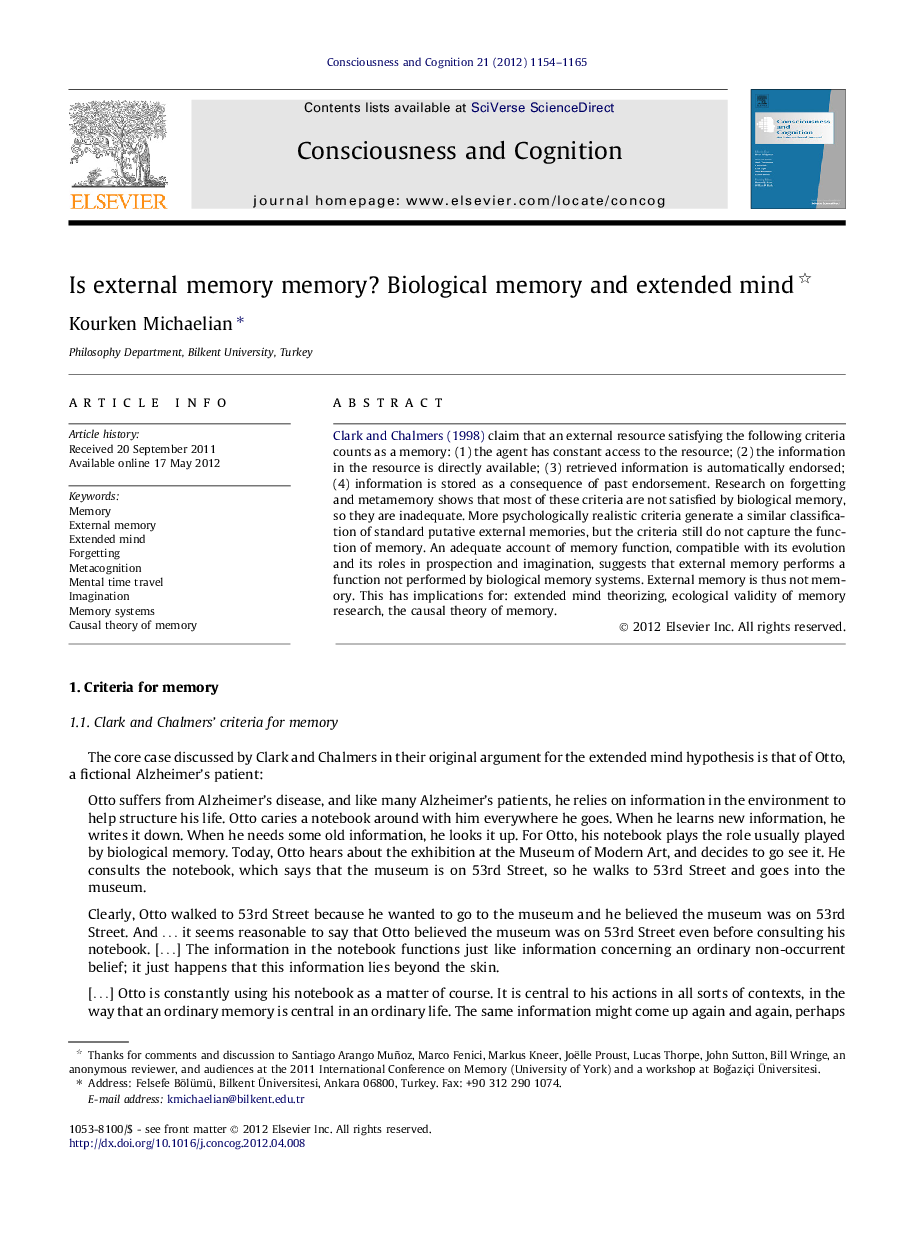| Article ID | Journal | Published Year | Pages | File Type |
|---|---|---|---|---|
| 927607 | Consciousness and Cognition | 2012 | 12 Pages |
Clark and Chalmers (1998) claim that an external resource satisfying the following criteria counts as a memory: (1) the agent has constant access to the resource; (2) the information in the resource is directly available; (3) retrieved information is automatically endorsed; (4) information is stored as a consequence of past endorsement. Research on forgetting and metamemory shows that most of these criteria are not satisfied by biological memory, so they are inadequate. More psychologically realistic criteria generate a similar classification of standard putative external memories, but the criteria still do not capture the function of memory. An adequate account of memory function, compatible with its evolution and its roles in prospection and imagination, suggests that external memory performs a function not performed by biological memory systems. External memory is thus not memory. This has implications for: extended mind theorizing, ecological validity of memory research, the causal theory of memory.
► Clark and Chalmers’ criteria for memory are not satisfied by biological memory. ► A more psychologically realistic account of memory function is needed. ► A more realistic account implies that external memory is not a type of memory. ► Implications for memory research in philosophy, psychology, cognitive science.
